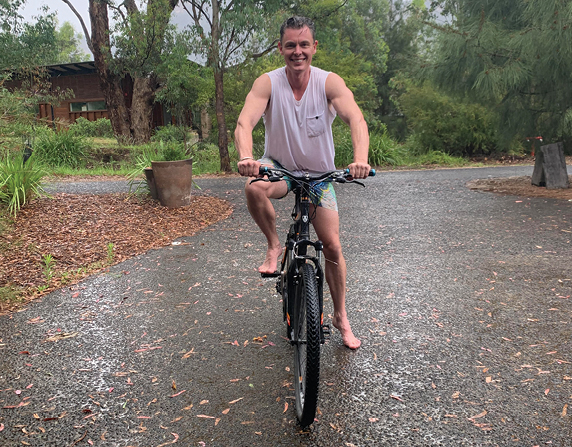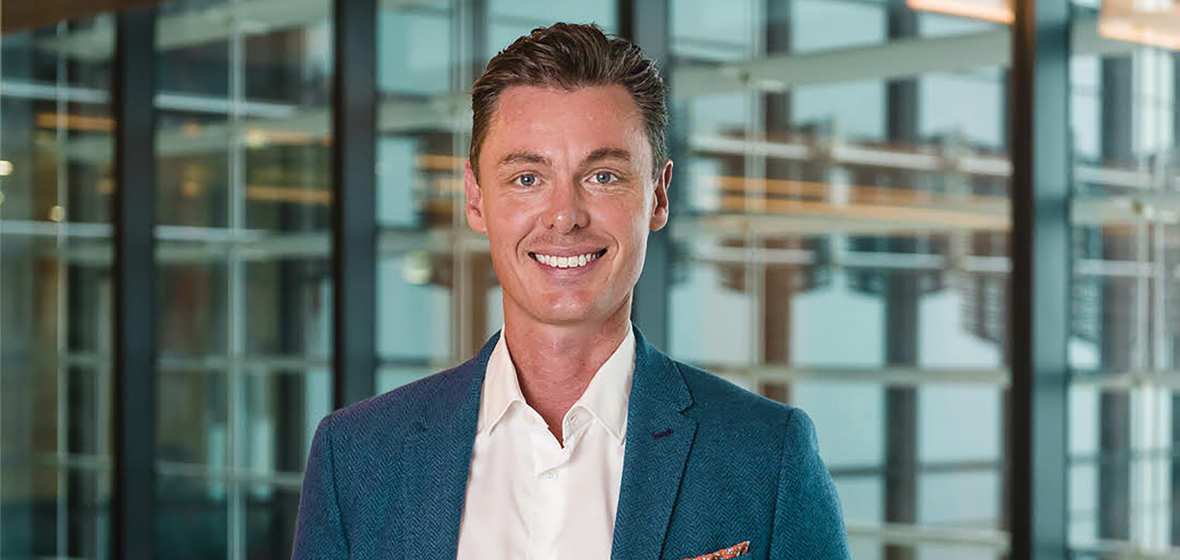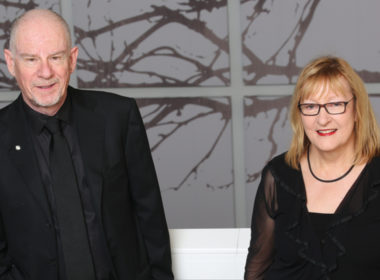Symptoms of stress, depression, and anxiety affect us all from time to time. But this lawyer found a solution he’s keen to share with others.
Nathan Cahill was lifting weights at the gym one morning when he started getting pain in his neck and back. He was about 40 at the time, and in peak physical health, so it was highly unusual.
Cahill pushed through and kept working out but before long, he felt so unwell he thought he was going to vomit. He got in the car and drove home. By the time he arrived, he felt like someone was stabbing him in the chest. He called an ambulance and had a second heart attack at hospital.
“I almost died that day,” he tells LSJ. “I actually ended up in hospital again two weeks later and I had this quite interesting thing. The doctors thought I was having another one, but it turned out to just be an aftershock. It was a Monday and it was so busy, I remember it clearly. I heard a voice telling me I was back because I didn’t realise just how close I’d got to dying last time I was there.”
It turned out one of the arteries from his heart had actually split. He had no heart disease, but for some reason, that day his body simply couldn’t handle the strain. He was rushed into surgery and it took six months for him to return to work. It prompted a period of deep introspection.
Cahill is a partner at Gilbert + Tobin, where he specialises in investment law, and he’s also the founder of wellness company iWithin. It was created to help people tackle things like depression and anxiety and make lasting changes that will help them live fully and achieve their goals.
It’s something he’s had a lot of experience tackling first-hand.
“I’d been working in gyms since I was 17,” he says. “I started to notice pretty quickly that you could only help people lose weight and get fit if their mind and heart was in the right place. I set out trying to help people from that point of view – that’s when I started getting into psychology and self-help.”
But it was more than that. He personally suffered depression and anxiety for about a decade, starting in his early 20s. When he saw a doctor, he was prescribed antidepressants, but it wasn’t the solution he wanted. He was looking to address the root cause, and it started a pilgrimage of sorts. It saw him looking for answers everywhere from mediating on mountain tops with the Dalai Lama’s closest teachers to reading psychological studies from the world’s top research universities.
“I spent tens of thousands of hours reading everything I could get my hands on,” he says. “I mapped out the root causes. If you’re overweight or depressed and can’t sleep, what’s causing it? I mapped them against the antidotes that I knew worked for each one. I started seeing patterns.”
Cahill also spent a lot of time interviewing people who had made major life changes, such as people who had overcome challenges like drug addiction and obesity, to find out what they did differently.
“There are all sorts of different promises people have out there for fixing your life,” he says. “I became an expert in what didn’t work, but I was also lucky enough to find some things that did.”
Eventually, he developed a model for success, realising that most people who succeed have about 21 things in common. It’s not about making quick fixes, he says, but sustainable long-term change.
Cahill successfully used this model to help get on top of his mental health and sustain a very high level of performance at work. He climbed the corporate ladder, became a partner, and pushed his body to its limits. He was just starting to think about finding a way he could use this knowledge to give back when that fateful day at the gym stopped him in his tracks.

It was an awakening in more ways than one – not just with his own stresses, but the challenges facing other high-level executives. When he returned to work, one colleague took him out to lunch and said they were struggling with their work-life balance. Another the following week broke down crying in a crowded city restaurant, saying he was not coping with the pressure of law. Someone else revealed they were reliant on sleeping pills.
Cahill knew the principles he used daily could be applied to help others, which is why he started his wellness business. His view is that the law actually offers an incredibly flexible lifestyle but many lawyers leave the profession because of the stress and pressure. However, he says, with the right skills and strategy, people can thrive in the law and be healthy inside and out.
“The idea behind iWithin is different to anything else I’ve seen,” he explains. “We’re a bit like the Netflix of self-help, instead of trying to push a particular product or solution. We work out what someone needs and then help people find a solution that works for them. For example, a lot of people try to meditate to get to sleep – that might work initially, but they often wake a few hours later. Why? Because they did not do the meditation that was right for them to stay asleep.”
Next, he’s hoping to create an app version that people can refer to when they need to dial up their energy levels or dial down their stress. He also hopes to start working with kids and developing a product that will find new ways to address mental health in an age-appropriate way.
Cahill doesn’t lift as heavily as he used to, but he’s back to running at full speed and doing all the things he enjoys. He’s got three kids to chase after and he plans to open a bar in September, so he says he’s back to his old self and making sure he doesn’t waste any minute of the day.
“The last heart scan I did was looking pretty good,” he says. “The doctor said it shouldn’t affect me at all moving forward. It was one of those freak things, but it definitely makes you stop and think.”




